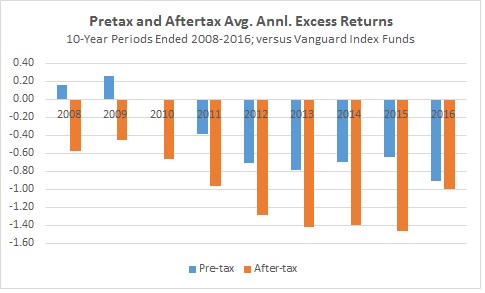- Joined
- Jul 11, 2001
- Messages
- 2,423
- Reaction score
- 1,052
Hey, guys, investment question here. When I got out of residency, I was working with a financial planner that I liked whose advice led me to a tax-managed fund-of-funds approach as part of my after-tax investing. The fund has done okay, but the fees are high and, since I now have a mortgage, the managed-tax-aspects of the fund are less necessary. If I were to take this money and put it into something else on my own, where should it go? I'm assuming index funds, but who do you like for low fees/good performance?
It's about $100K, my investment horizon is long, and I intend to continue to contribute $10K-$20K per year.
(to avoid the unnecessary ancillary advice, I'll add that I'm already maxing out my pre-tax contributions, roth-IRA, cash safety net, life/disability/umbrella insurances).
Thanks in advance!
It's about $100K, my investment horizon is long, and I intend to continue to contribute $10K-$20K per year.
(to avoid the unnecessary ancillary advice, I'll add that I'm already maxing out my pre-tax contributions, roth-IRA, cash safety net, life/disability/umbrella insurances).
Thanks in advance!

